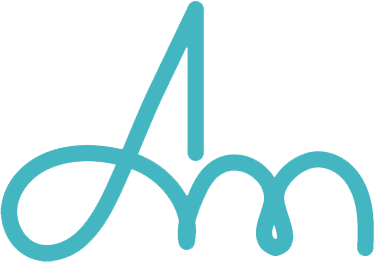4 Bad Ways To Start A Speech (And What To Do Instead)
Created in Midjourney by Andrea Markowski
Picture this: You're about to deliver a presentation. As you step onto the stage, the audience applauds, eagerly awaiting your words. They're all ears and ready for your speech to unfold—essentially, they're at the peak of their attentiveness.
But how should you kick off your speech? Let's consider the following options:
1. Manners first. Start by thanking the emcee for a fantastic introduction or the event organizers for the invitation. For example: "I want to express my heartfelt thanks for that wonderful introduction and for having me here today as your speaker."
2. Convey enthusiasm. Infuse excitement into your opening words. For example: "I am absolutely thrilled and honored to be standing here, addressing this vital subject."
3. Boost the energy! Encourage the audience to clap for themselves or for the event organizers. For example: "Give yourselves a round of applause! Your presence here is truly appreciated!"
4. Keep it simple with a self-introduction and bio: “Hello, everyone! My name is…”
The answer is E) None of the above. Not one of these options is ideal for launching your speech effectively. By relying on conventional and uninspiring techniques to begin your speech, you're not fully connecting with your audience. In fact, you might even divert their attention away. Don’t be a bad opener!
One Of The Best Ways To Begin A Presentation, And Your Job As The Speaker
There's a better way to begin your presentation: Pause briefly. Lock eyes with your audience, building anticipation. Then, dive into one of the best (and my favorite) opening strategies: tell a compelling, emotionally charged story that instantly hooks your listeners in the first few words.
[Secret insight! A momentary pause is one technique professional actors use when beginning a monologue audition—it ensures the judging panel's undivided attention.]
Your job as the speaker is to do one or more of the following: teach, entertain/inspire, or persuade your audience. At the start of your speech, your primary mission is to grab the audience’s attention and draw them in. Failing to hook listeners at the beginning might result in them zoning out and missing the key points you’re about to present.
Created in Midjourney by Andrea Markowski
The Most Common Mistakes People Make At The Start Of A Speech
None of the four options posed at the beginning of this post are interesting or will capture attention. Let’s break them down to dispel any doubts.
Manners first or conveying enthusiasm: If you want to thank people or say how excited you are to be there, you can! …later on in your speech. Your opener is no place for anything unrelated to your main topic. It’s your golden moment. Don’t waste it.
Boosting energy: While encouraging applause can elevate the room's energy, remember that you’re not a warm-up act at a pep rally. Also, if your topic is serious, clapping might seem out of place. Earn that applause through your content!
Simple self-intro: Introducing yourself might seem logical, but chances are, you've already been introduced in the program, on the screen behind you, or through promotional material. My apologies, but reiterating your name or going through your bio isn't a powerful enough opener…unless you're a one-name celebrity (and if so, I'm flattered you are reading this)!
The Psychological Science Behind It
Why is it critical to capture your audience's attention from the get-go? Here’s where the psychological effects of primacy and recency come into play. Simply, people tend to remember the first and last things you say. Make those moments count. (More on how not to end your speech in another post.)
A reality check: You're competing with smartphones, fatigue, and even refreshments. Have you seen audiences scrolling through social media during a keynote speech? I certainly have. Don’t be boring. Thanking people, begging for applause, saying how excited you are, or starting with your bio might push the audience towards checking email instead of listening to your critical message.
Engaging Beginnings And Beyond
What are some of the most captivating speech openers you've heard? Don’t be afraid to follow suit and borrow those techniques for your next presentation!
Discover the incredible power of public speaking, a core skill that can transform your career and elevate your everyday interactions. Don't worry, it's totally achievable—anyone can conquer the art of speaking and presentations through practice. If you want to level up in this area, join me for some seriously cool techniques rooted in behavioral science, marketing strategy, and the performing arts. You deserve to be heard.


